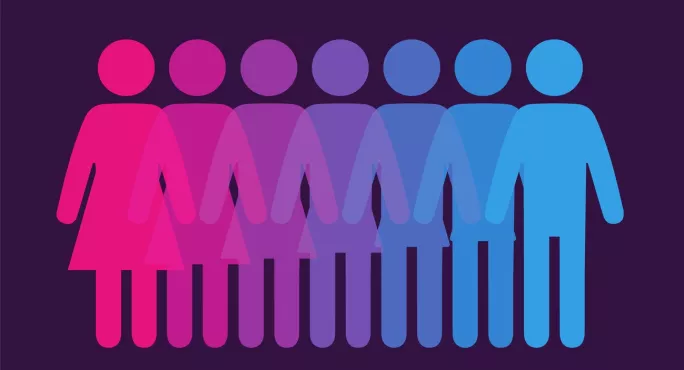- Home
- ‘Being LGBT in college is getting better’
‘Being LGBT in college is getting better’

The teenage years are a particularly difficult time: racing hormones, identity development, popularity contests, exams, and of course, sexual development all take place at once. Yet, historically our schools and colleges have not been seen as great places for non-heterosexual people; their experiences are often typified by forced silence, victimisation and harassment.
The most recent schools report from charity Stonewall found that almost half of young LGBT people are victims of bullying. Shockingly, Stonewall’s 2014 Teachers’ Report found 86 per cent of LGBT secondary school teachers have also experienced homophobic bullying. These findings are very alarming for everybody interested in education, but particularly LGBT students and staff members who spend a significant proportion of their lives in these environments.
It is not surprising that educational settings have been seen as hostile places for LGBT teachers and students, given that it was only three decades ago when the Tory administration enacted Section 28 of the Local Government Act, which prohibited the promotion of homosexuality. While nobody was ever convicted under this legislation, it did mean that LGB teachers hid in the closet through fear of being accused of promoting homosexuality. Similarly, students were treated as inferior beings: no mention was made of them or issues pertinent to them - such as safe same-sex sex, queer families or gay history - in curricula or the classroom.
Attitudes changing fast
Thankfully, views towards homosexuality and same-sex relationships have been changing - and they have been changing quickly. The British Social Attitudes survey shows that homophobia is now at its lowest recorded level, and that legal developments, such as marriage equality, have been significant. Teachers are increasingly coming out within schools; for instance, Harris Academy teacher Daniel Gray ignored advice to remain closeted and instead come out to students in a school assembly.
We wanted to understand how this social change influenced the experiences of staff members and students at one FE college in the South of England. In doing so, we interviewed 26 LGB staff and students to understand how they experienced education today.
Those with whom we spoke told us that they had not encountered homophobia within the FE setting. One lesbian student said: “I’ve experienced nothing homophobic at this college.” Another gay student said: “I’ve had no bad experiences…I’ve been completely accepted by everyone.”
There was also unanimous agreement among teachers and staff, who declared that they had not experienced nor witnessed any cases of homophobia within the college. One said: “I can’t bring to memory any instances of homophobia for any of the time I’ve worked here.”
Some ‘homophobic’ phrases accepted by LGBs
Homophobia is often judged by the incidence of homosexually themed language, including common phrases such as “that’s so gay”. But the LGB people with whom we spoke did not believe this language to be a good indication of homophobia. In fact, many of them said they used the phrases themselves - and that they were even seen as a symbol of endearment between friends. One lesbian told us: “I’m known as ‘the lesbian’ to my mates. It’s just what they call me. I think it’d be weird if they called me something else.”
Interestingly, this particular college was seen as an inclusive space in which students and staff could be themselves, with all but two staff members being completely open about their sexuality. Many compared the college environment to the school, and one gay teacher said LGB was recognised and talked about, “whereas in school, people are not always comfortable doing that”.
The visibility of gay identity was particularly important; staff members wearing rainbow ribbon on their lanyards and same-sex couples holding hands on campus were visual reminders of acceptance. One student told us about how “Jess and Becky, a cute couple I know, always sit next to each other and hold hands under the table”.
Our research shows that the experiences of LGB staff members and students in education are improving. It is really positive to see that the experience of students and staff members at this college is one of inclusion, support and openness. Of course, this will not be the case everywhere, but It does suggest that - in some areas and in some schools and colleges - things have and are improving.
Such progress needs to be continued. Further work on ensuring equality for all LGB young people and the staff who work with them is vital. The curriculum, role models and learning resources should be reflective of the diverse communities within our schools and colleges.
Who knows, we may be on the cusp of having schools and colleges that are completely inclusive of LGB staff and students.
Dr Adam J White is a teaching fellow at Oxford Brookes University. He came out of the closet in 2007
Keep reading for just £1 per month
You've reached your limit of free articles this month. Subscribe for £1 per month for three months and get:
- Unlimited access to all Tes magazine content
- Exclusive subscriber-only stories
- Award-winning email newsletters